简体中文
繁體中文
English
Pусский
日本語
ภาษาไทย
Tiếng Việt
Bahasa Indonesia
Español
हिन्दी
Filippiiniläinen
Français
Deutsch
Português
Türkçe
한국어
العربية
HEY, Retail Traders! Here are 10 Things You Must Know!
Abstract:We bet most retail traders here know nothing about these 10 interest facts! Read here to find out!
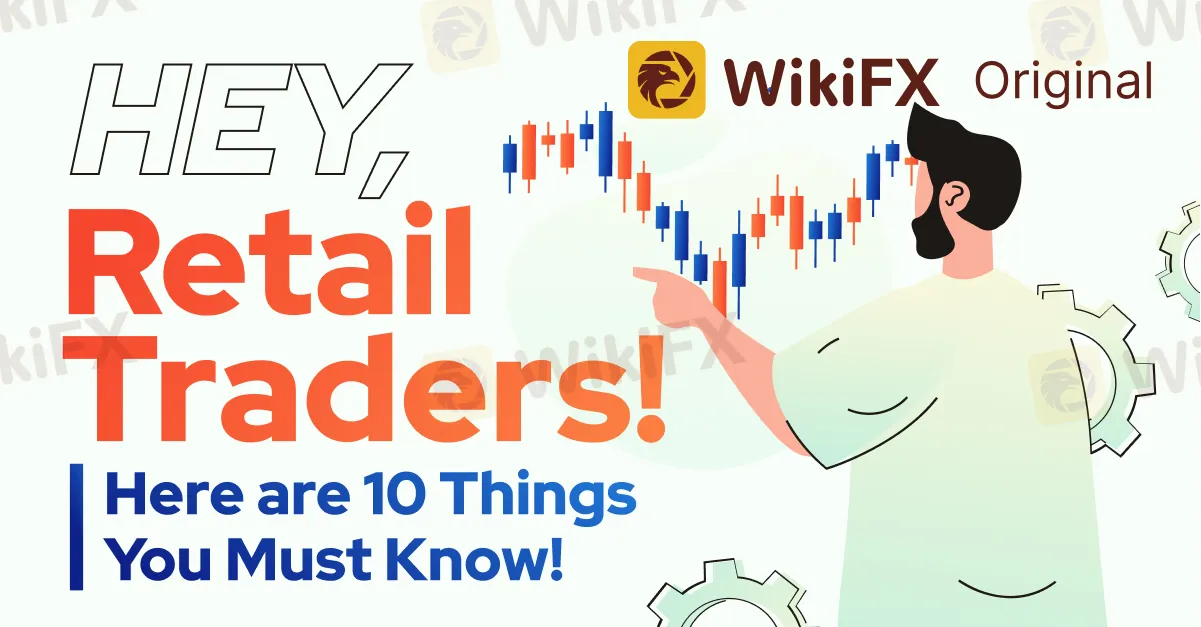
1. Understanding Retail Traders: An In-Depth Exploration
In the world of securities trading, there are two main categories of traders: retail traders and institutional traders. Retail traders, also known as individual traders, engage in trading securities with the goal of earning a profit. They operate on a smaller scale compared to institutional investors and have distinct characteristics and strategies. It's important to note that retail traders use their own capital for trading and do not manage funds for others.
2. The Emergence of Retail Trading
Retail trading gained traction in the 1990s with the advent and advancement of forex trading platforms. These platforms allowed small-scale investors to trade forex directly, bypassing the need for a broker and enabling independent trade execution.
3. The Growing Number of Retail Traders
Currently, there are an estimated 13 million or more retail traders worldwide, and this number continues to rise as more individuals are drawn to the potential of generating profits through retail trading.
4. Defining Retail Trading: A Closer Look
Retail trading involves the buying and selling of securities through broker-dealer firms that cater specifically to individual investors. These firms are typically smaller in size compared to the larger investment banks that serve institutional clients.
5. Roles and Responsibilities of Retail Traders
Retail traders are individuals who trade securities for their personal accounts, as opposed to trading on behalf of an organization. They conduct their trades through online or offline brokerages. The primary objective of a retail trader is to execute buy and sell orders for securities, either for personal gain or on behalf of others.
6. Exploring Different Types of Retail Traders
Within the realm of retail trading, various types of traders employ different strategies to achieve their goals. These include:
Day traders: Individuals who buy and sell stocks within a single day, capitalizing on short-term price fluctuations.
Swing traders: Traders who hold stocks for several days or weeks, aiming to sell them at a higher price than their purchase price.
Position traders: Investors with a long-term approach, holding stocks for months or even years, seeking to benefit from overall market trends rather than short-term price movements.
7. Contrasting Professional Traders and Retail Traders
There are three key distinctions between professional traders and retail traders:
Professional traders receive compensation for trading other people's money, while retail traders trade with their own capital.
Retail traders do not rely solely on trading as their primary source of income and should have alternative income streams to support their trading activities.
Success in retail trading requires using surplus funds rather than trading to cover living expenses.
8. The Volume of Retail Trading and Its Implications
Retail trading volume has been increasing, driven by the post-pandemic recovery in businesses. Currently surpassing the median level, the volume of retail trading has experienced a significant uptick of approximately 17%, signaling positive prospects for the industry.
9. Earning Potential for Retail Traders
While retail trading can be a profitable endeavor, the amount of money a retail trader can make largely depends on their skillset and prevailing market conditions. On average, retail traders can expect an annual income ranging from $16,500 to $137,500, with the national average standing at approximately $55,794. This suggests that retail trading can provide a fulfilling career path for those who dedicate themselves to mastering the intricacies of the trade.
10. Noteworthy Figures in Retail Trading
Several iconic and successful retail traders have made their mark in history:
Nicolas Darvas: Renowned for his exceptional stock trading skills, Darvas amassed a fortune and his fund peaked at over $2 million, exemplifying the potential of retail trading.
George Soros: With a net worth of approximately $8 billion, Soros is a highly acclaimed retail trader. He made headlines when he famously broke the Bank of England in 1992, generating over $1 billion in profit during the Black Wednesday crisis.
Jesse Livermore: Known as the “Boy Plunger,” Livermore was a prominent retail trader who made and lost fortunes through his audacious bets. Despite the ups and downs, he remains one of the most successful traders in history.
Paul Tudor Jones: A highly accomplished retail trader with a net worth of around $5 billion, Jones gained recognition for his accurate predictions during the Dotcom bubble burst in 2000.
If you are a successful retail trader wannabe, you should never miss out on the free educational resources that is specially curated by WikiFX at https://www.wikifx.com/en/education/education.html.








WikiFX's educational site is a valuable resource that offers comprehensive educational materials, including articles, tutorials, videos, and webinars, covering various aspects of trading, investing, risk management, and market analysis. With carefully curated content and interactive features, the site empowers retail traders with the necessary knowledge and tools to make informed investment decisions, enhance their trading skills, and foster a community of shared learning.

Disclaimer:
The views in this article only represent the author's personal views, and do not constitute investment advice on this platform. This platform does not guarantee the accuracy, completeness and timeliness of the information in the article, and will not be liable for any loss caused by the use of or reliance on the information in the article.
Read more
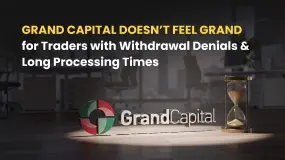
Grand Capital Doesn’t Feel GRAND for Traders with Withdrawal Denials & Long Processing Times
The trading environment does not seem that rosy for traders at Grand Capital, a Seychelles-based forex broker. Traders’ requests for withdrawals are alleged to be in the review process for months, making them frustrated and helpless. Despite meeting the guidelines, traders find it hard to withdraw funds, as suggested by their complaints online. What’s also troubling traders are long processing times concerning Grand Capital withdrawals. In this Grand Capital review segment, we have shared some complaints for you to look at. Read on!
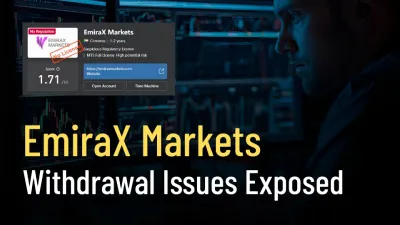
EmiraX Markets Withdrawal Issues Exposed
EmiraX Markets Review reveals unregulated status, fake license claims, and withdrawal issues. Stay safe and avoid this broker.
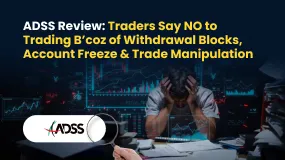
ADSS Review: Traders Say NO to Trading B’coz of Withdrawal Blocks, Account Freeze & Trade Issues
Does ADSS give you plenty of excuses to deny you access to withdrawals? Is your withdrawal request pending for months or years? Do you witness account freezes from the United Arab Emirates-based forex broker? Do you struggle to open and close your forex positions on the ADSS app? Does the customer support service fail to respond to your trading queries? All these issues have become a rage online. In this ADSS Broker review article, we have highlighted actual trader wordings on these issues. Keep reading!
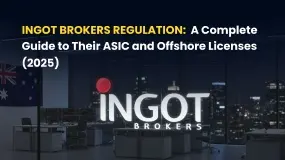
INGOT Brokers Regulation 2025: ASIC vs Offshore License - What Traders Must Know
Explore INGOT Brokers regulation in 2025: Compare their ASIC and Seychelles FSA licenses, understand trader protection levels, and learn about potential risks in this detailed guide.
WikiFX Broker
Latest News
Consob Targets Political Deepfake “Clone Sites” and Unlicensed Platforms in Latest Enforcement Round
WikiEXPO Global Expert Interviews: Gustavo Antonio Montero: ESG in Finance
Global Guide to Finding Forex IBs/Brokers — Share Your Pick and Win Big!
Trump tariffs are helping drive U.S. beef prices to new highs
Mitrade Arabic Platform Targets MENA Gold Trading Boom
Israeli Arrested in Rome Over €50M Forex Scam
Scam Alert: GINKGO-my.com is Draining Millions from Malaysians!
New FCA Consumer Alert 2025: Important Warning for All Consumers
EmiraX Markets Withdrawal Issues Exposed
Trading Pro Review: Scam Broker Exposed
Currency Calculator



